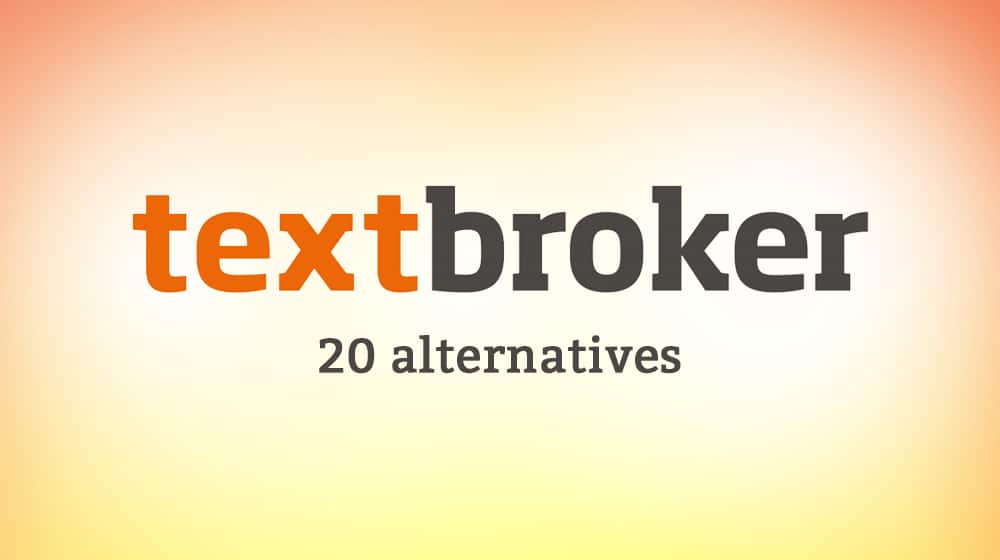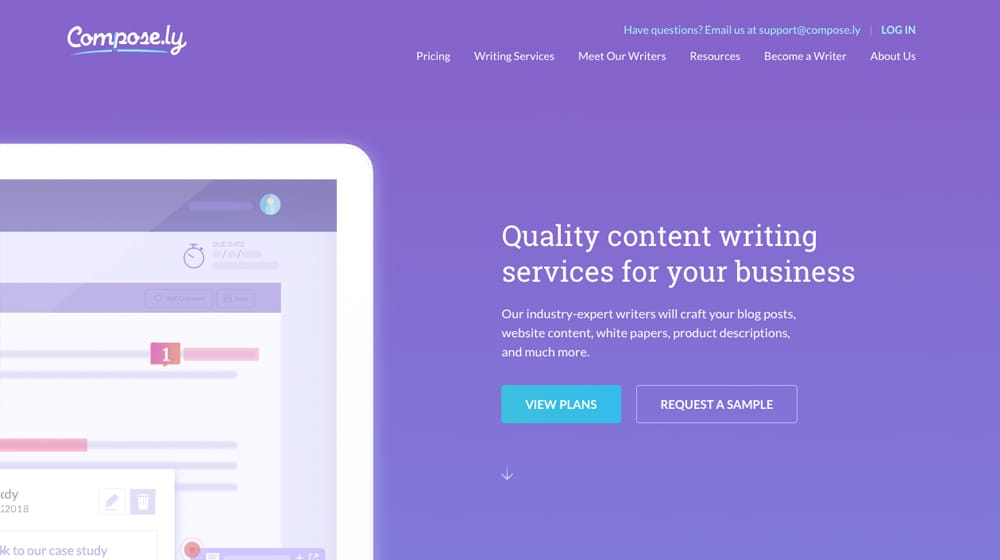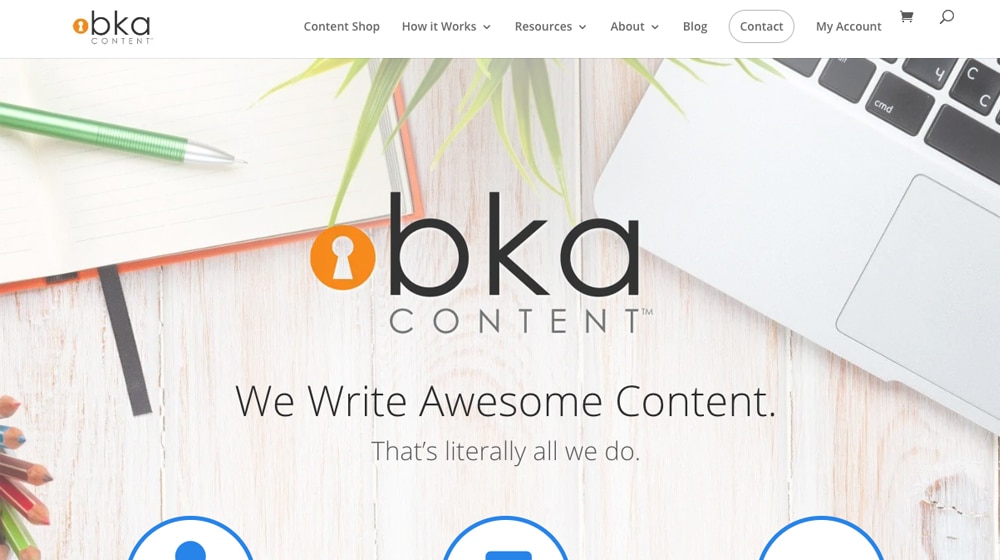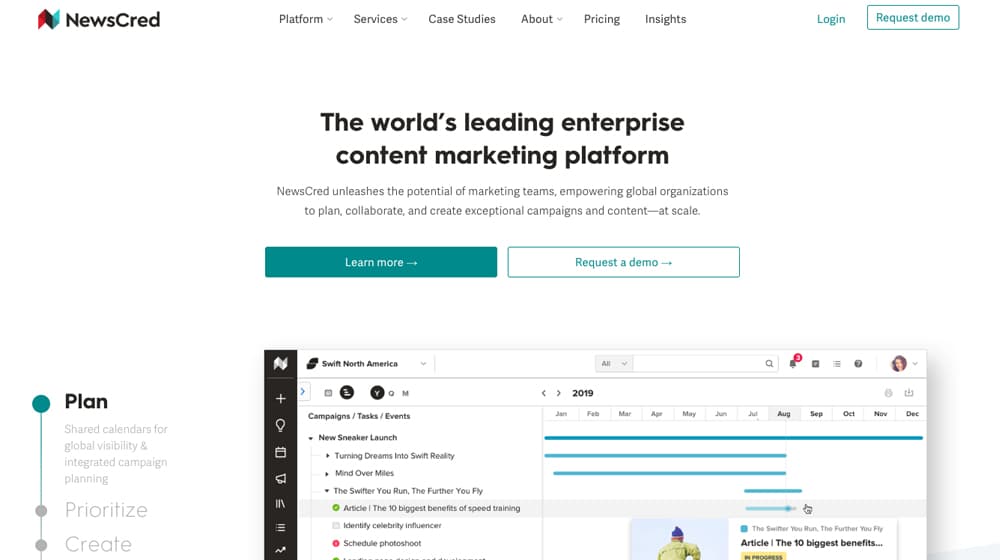Textbroker Not Working Out? Here Are 20 Alternatives to Use

Textbroker is one of the more commonly known content mills, because they've been around for a while and have survived multiple Google algorithm updates that killed lesser content mills. They are, however, still among the bottom of the barrel. Their roster of writers tends to be largely low quality, and while you can find some diamonds in the rough, it's going to take a lot of trial and error, a lot of revision requests and dropped assignments, and plenty of money spent on content you don't really want.
Alternatively, you can always just bypass the struggle with Textbroker and try out one of the other content mills. They're far from the only game on the block, you know. I would venture to guess there are at least 100 different content mills out there, though some of them might have a very low population. If you count agencies, there are way more, but then you have to figure out how to draw the line between a content mill and a higher quality agency.
If you want to check out a different content mill, but aren't sure which one, here are twenty you can pick from. I've never used any of them personally, though I've talked to writers and clients for a few of them and have a basic impression. That said, none of them have a reputation of outright scams or other malfeasance, so feel free to give them a shot. The worst that can happen is you waste a bit of time and money, but not a lot of either.
 30 Second Summary
30 Second Summary
Textbroker has low-quality writers and requires trial and error. Try other content mills like Writer Access, Media Shower, Zerys, Constant Content, Verblio, Words of Worth, Contently, ClearVoice, Skyword, eByline, Content Gather, iWriter, Scripted, The Content Authority, Draft, BKA Content, CopyPress, SmartBug Media, NewsCred, and Upwork. Each has different pricing and unique features. Some offer subscription services or additional tools, but be prepared to pay more for higher quality.
2024 Updates
In 2024, you'll see a few new platforms that fit every writing style and skill level. Let's talk about a few options:
First, you might want to check out FlexJobs. You pay a fee, but you get remote and flexible writing jobs without the trouble of one-off gigs. This fee might seem like a barrier at first, but you'll quickly find it's worth it for the high-quality job listings. You can hire a freelance writer for as cheap as a few hundred dollars per month, and that ends up being less than quite a bit of options on this list.
Also, you might want to look at ProBlogger Job Board as another solid resource. Here, you'll also find strong blogging and content writing jobs. If you're great at making solid blog posts and connecting with clients who appreciate your skills, this site is for you. I've hired from this site on more than one occasion. You might want to check out Smart Blogger Jobs Board, too - this site also lists high-quality writing jobs for bloggers.

If you're focused quite a bit on SEO and strong content creation, you can check out Compose.ly. You need to pass a test to join and since only skilled writers can get in - it improves the job quality.

There's always sites like Upwork and Freelancer, too. You can find jobs across any niche because of its huge user base and project number. You might want to check out if you're into technical writing, creative things, or something else, you'll find things here.

If you love SEO content writing and want flexibility, look into Crowd Content, as this site has different tasks and has something for everyone from quick projects to more big work. I think it's a good match if you enjoy making pieces that use keywords strategically to drive traffic.
If you're strong at creating keyword-driven content directed at improving traffic and ROI, check out Siege Media, as this company is known for making content that affects client metrics.
1. Writer Access
Imagine a site that worked basically just like Textbroker, except it was better in every way. The writers were friendlier and more fluent in their niches, the profiles are more robust, the content is higher quality; it has everything you want to have out of a content mill.

What you're imagining is Writer Access. It's still a content mill, but their roster of writers is better all-around. You can tailor your assignments to specialists for particular industries, and you can put out a casting call and have writers apply to be part of your team, allowing you to curate the best ones.
The only downside to Writer Access is the pricing. On average, you're going to be paying a bit more than Textbroker rates here, and if you want the best talent on the platform you're going to have to pay for it. Still, though, it's more worthwhile than many others on this list, which is why I've put it right up top.
2. Media Shower
Media Shower is a bit odd. They're part content mill, part marketing firm, so they'll help you with more than just content if you pay for it. Also, their payment system is different from a content mill; you pay for a monthly subscription, and they provide whatever you're paying for, be it content, a marketing toolkit, press releases, or content optimization. Pricing ranges from $500 to $5,000 per month.

Possibly one of the stranger aspects of this site is that they pivoted hard to blockchain technology. They're huge believers in the Bitcoin technology and its spinoffs, and they use it like a buzzword even in places it doesn't make sense. If you're in that niche, you can benefit from their focus, but if you're not, it comes off as annoying if anything.
3. Zerys
Zerys has a managed service and a content mill self-serve platform. The managed service, though, really just has someone else creating your listing for you. On the back end, it's just another content mill, with open pools, assignment descriptions, and writers vying for the chance to write your content for you.

Pricing tends to be a little higher than Textbroker for basic work, and even higher if you want more technical content. The population is also somewhat lower than many other content mills, so it can take some time for your assignments to be picked up and written. Still, it's worth consideration.
4. Constant Content
Constant Content used to be a simple content marketplace. Writers would write content on spec, and if you saw something you liked, you could buy partial or full rights to it. Partial rights are interesting; you can buy it and publish the content, but other people can come in and also buy rights to it. This, unfortunately, means that someone else can copy your content legally, and it can hurt your SEO. As such, most writers no longer offer partial rights, because it just ends up being a single sale rather than multiple like it was intended.

You can also build teams and set assignments, where writers deliver submissions and you can buy as many of them as you like. It's probably one of the better spec networks out there, actually, though pricing is higher than many content mills because of it.
5. Verblio
Verblio is kind of a cross between a content mill and a spec writing site. You sign up and you can post assignments, and writers will write spec content for you to browse. You can buy what you want, and anything you don't buy goes into a pool for other businesses to pick through. You can also pick through old written content and buy anything that works for you.

Verblio was previously known as Blogmutt. They did the same thing under that name, but the rebranding allowed them to distance themselves from some negative reviews and adjust their pricing to be more premium-level than entry-level.
6. Words of Worth
Words of Worth is one of a few content mills that I hesitated to put on this list, because they're purely the writer-facing arm of a content marketing agency. If you go to their site, all you see is information about how to write for them, not how to hire them. You need to contact a different business – and I don't know which one – to hire the writers at Words of Worth. It may be worth contacting them if you're curious about this.

Words of Worth is also interesting, in that rather than paying for individual projects, you can pay for a package deal. Say you want 10 articles on a given range of subjects; you can contract one specific writer to deliver all ten, so they work together and are written in the same style. This can be hugely beneficial for blog writing!
7. Contently
Contently is another platform where you sign up for a monthly subscription, which includes access to their writer talent pool, but also to content ideation and strategizing tools that can help you determine what kind of content you need for your blog.

The pricing is pretty expensive for a content mill, so you want to be conservative with using it when you first start out. Make sure to give it a test run and see if you can get real value out of it before you invest more heavily into higher tier plans.
8. ClearVoice
Like Contently, ClearVoice has taken steps to add value onto their platform beyond just simple content production. When you pay for a plan, you get tools for content ideation and organization, editorial calendars, and more.

You also gain access to their roster of writer portfolios. You can search through and find writers who suit your budget and needs, then pitch assignments to those writers. You work with the writers and an editor to produce high quality content, and publish it through their tools automatically or by manual operation, whichever you prefer. The only downside is that pricing can be quite high for a content mill.
9. Skyword
Skyword is on the border of what I would call a content mill. Their pricing is high for content mill content, but it's low for an agency, so it straddles the line. They're really a content marketing agency that works with mid-range and small businesses. It's pretty good, but there are a few quirks with the system.

We create blog content that converts - not just for ourselves, but for our clients, too.
We pick blog topics like hedge funds pick stocks. Then, we create articles that are 10x better to earn the top spot.
Content marketing has two ingredients - content and marketing. We've earned our black belts in both.
Possibly the biggest drawback is the editing process. It's not entirely consistent; some times you can bring your own editor, and sometimes you can hire an in-house editor. It's also possible that an editor will spot-check your content before delivery regardless, which can add some delays. Overall, though, it's not a bad platform to try.
10. eByline
Now, eByline is an interesting spin on a content mill, where they focus more heavily on journalism than on general content. This can be good if you're a business trying to position itself as a new Vox or Verge, but if you're just trying to have an authoritative industry blog, you're better off looking elsewhere.

Pricing is also very inconsistent. They judge your requests based on scope, complexity, content type, and volume, and come up with a price from there. There's not much room to haggle, but neither is it truly consistent from one project to the next.
11. Content Gather
Content Gather is similar to Constant Content, in that it functions as a content marketplace.

The primary downside to this site is that it has a relatively small stable of clients and writers, so turnover is very slow. You can check the marketplace for content, but if you don't like what you see, don't expect to see a lot of new content any time soon.
12. iWriter
This particular content mill has four star-levels for writers, and pricing depends on the star level and length of the content you want to purchase. Their lowest level of content is about on par with Textbroker's 3-4 star content, and it goes up from their.

Pricing is still pretty low, and they allow you to purchase a variety of different kinds of content, including manually-spun article rewrites. I recommend going for original content, of course; rewrites can be detected by Google's algorithm and could potentially get you in trouble.
13. Scripted
Scripted is a relatively new content mill, and unlike other content mills, they have writers from a range of European countries and even a few more exotic locations, like Japan. This means you can get some more local content if you're in one of those areas, though since most content online is in English, it might not be as big a benefit as you'd like.

Pricing varies depending on the kind of content you want, but you're really just paying a subscription fee that starts at $124 per month. They limit you to the number of writers you can invite to a project at the low tiers, the number of revisions, and some other perks that the higher tier plans get. Up to you which plan you prefer, honestly.
The Content Authority is another Textbroker-like standard content mill. They allow you to order content of varying types, including blog posts, ebooks, press releases, social media posts, and more.

Pricing ranges from 1.2 cents per word for low-end content to 6.5 cents per word for high-end content. At those prices, you're not going to be getting the next Odyssey, or even the next big viral post, but it's good enough if you want to fill out a blog with basic content as a seed.
15. Draft (formerly ContentFly)
Like Textbroker, ContentFly is a content mill, but its marketing angle is to present itself as a higher-end solution. Instead of charging 2-3 cents per word, they charge 7-10 cents per word and up, depending on the length of your content. They have a money-back guarantee, but only if you've purchased at least 4,000 words of content. Like Textbroker, they have free revisions.

Unfortunately, the general feedback about the content written on their platform is that it is simply "okay." Several of our clients worked with ContentFly and mirrored that sentiment. The real benefit of using ContentFly over Textbroker is that it comes with royalty-free images. Still, those are free anyway, and there are many places to grab free photos.
16. BKA Content
BKA is one of the older content mills on this list, founded somewhere around 2009. They are about as standard as a content mill can get. They focus on keywords and formulate ideas around it. The only strange thing is that they deliver content in MSWord formats rather than in the usual online form delivery or some integrated tool.

Pricing is par for the course for content mills. It's not very high, and the quality is what you pay for it. If you go in with low expectations you may be pleasantly surprised, but if you're looking to find that diamond in the rough, you may just be out of luck.
17. CopyPress
Copypress is a mid-range content mill, with pricing that reflects having a slightly better talent pool than the norm, and an emphasis on more well-researched and thought out content. One of the biggest drawbacks to many content mills is that, to facilitate ease of writing, writers push out the most basic content they can within their guidelines. Copypress tries to buck this trend and focus on better, deeper content.

Does it work? Well, it depends on who you ask. Some clients come away satisfied, and others find the content still too basic for their blogs. It's all about context and how well you convey your needs to the writers at hand.
18. SmartBug Media
SmartBug is a content marketing agency that I've listed mostly to show you that there's more to life than just the content mills. Some content marketing agencies cater to small businesses with relatively low budgets, and that's what you're getting here. You can hire them for a variety of different kinds of content, but they're also going to push you to use their platform, their managed services, or their other tools. How much you get out of it depends on what you need.

It's also worth noting that this company focuses pretty heavily on B2B content. They can handle B2C content if you need them to, but it's not their usual focus, so it might not be as good. B2B writers can sometimes be hard to find, though, so it's worth giving a look.
19. NewsCred (now Orchestrate by Optimizely)
NewsCred is another of those content mills that focuses much more heavily on journalism and unique, detailed reporting than it does on informational and evergreen articles. As such, they have accumulated some talented researchers and writers, and their pricing reflects that.

Don't expect to pay the low content mill rates for the content you get from this agency. They aren't top-tier pricing, but they aren't too cheap either. You're going to be paying fair rates for what you're getting. Still, what you get is probably going to be quite decent.
20. Upwork
Upwork is last on this list because it's not really a content mill. Rather than hiding contact information, Upwork allows you to reach out to freelancers directly and contract individuals. There's no mucking about with open pools or hidden talent; you find someone, you hire them, and you get what you get. Pricing depends on the freelancer, and it's up to you to work out a contract that satisfies you both.

Upwork is one of many freelancer hubs, and I'm only including it to show you that there are options beyond just content mills if you want content, even cheap content. Give it a try and see how it works out.
Dead Sites
As with any blog post, links get stale, and things need to be updated. This section is a list of sites that I mentioned that are no longer around or are having issues, and I've included them here for posterity:
1. London Brokers
London Brokers was another of those companies that hires writers for a pittance, and delivered their content through another agency with a different name. Much like Words of Worth (and Writer's Domain, which I didn't list), you would have to reach out to them directly rather than through their website to figure out how to hire them to produce content for you.

One potential benefit to this content mill was that they had a portfolio of writers from non-US countries. Normally this might not seem like an upside, but if you wanted bilingual content or content with a foreign angle to it, this was a clever way to get it.
Your turn! If you have used any of these platforms as a client – not as a writer – please leave a comment with your experiences. Like I said, I haven't really used many of these, so I'm interested to see how my impressions line up with reality. Drop me a line!



 30 Second Summary
30 Second Summary


April 16, 2020 at 5:19 am
Some good options here. I recommend adding Composely to the list as well. We've tried them in the past and had some good results.
April 22, 2020 at 6:26 pm
Hi Andy! Composely is a good mid-range option, and a sort of hybrid between a content mill and hiring a freelance writer. There are so many content sites it's hard to list all of them, but I agree that Composely is a good alternative to Textbroker as well. They are still technically a content mill but they include some stock photos which sets them apart. I'm not sure if the added cost is worth it for those stock photos, however. I think you're primarily paying for somebody to edit and review the content so what you're getting is read and approved by somebody other than the writer.
What are you using now, if you don't me asking?
December 01, 2020 at 4:29 pm
Hi James! I'm not quite sold on a content mill yet, but I'm tempted to try Writer Access or Verblio.
If I had to choose one, which would you recommend? I know this is your industry too so it's tough to recommend a competitor, but I figured you'd know better than most.
Thank you!
December 02, 2020 at 6:04 am
Hey Tristan! Between the two, Verblio.
They have managed services where they publish articles for you as well as insert images into your posts.
The only thing I don't like is that you still have to come up with topics yourself and perform most of the other work involved with content marketing - and a lot can go wrong there.
The problem with content mills is with every order, you're rolling the dice when it comes to quality.
Sometimes it's a 3, sometimes it's a 6, sometimes it's a 1.
Many businesses aren't reading these articles from start to finish, so they run into issues with search engines when they're publishing articles that aren't good.
So, they're technically a content mill, but a higher-end one.
Good luck on your search!
February 08, 2021 at 5:00 am
Currently, our company is using NewsCred but I am thinking of shifting to hiring a freelancer. You think it will be a good idea?
February 11, 2021 at 7:37 pm
Hey Bob!
I think the biggest benefit of hiring a freelancer is having a consistent voice and consistent content quality.
With companies like NewsCred, you get some hits, some average posts, and some misses.
If you take your time and find a talented freelancer, it's a much better option. They'll also grow to be more familiar with your industry, and interlinking between your posts will come naturally to them since they wrote all of your posts. Having consistent quality like this is also much better for SEO, as Google's John Mueller has said in the past.
I think sites like TextBroker and NewsCred are just a gateway to better solutions. I say make the jump!
There are levels to content marketing and switching to a freelancer will take you to the next level. The next level above that would be a team or an agency for a business blog.
Hope this helps!
February 22, 2021 at 9:05 am
+1 for Writer Access. I used TB before but shifted to WA since it's way way better! Rate is higher than TB but worth it.
February 26, 2021 at 6:44 pm
Hey Violet, thanks for your comment! Glad to hear it's working out for you.
March 04, 2021 at 5:30 am
I got my writer from Upwork 2 yrs ago until my business partner and I offer her a full-time position
March 04, 2021 at 11:24 pm
Hey Bill! Thanks for the feedback, happy to hear you found a talented writer 🙂
March 26, 2021 at 4:37 am
Tried Writer Access, it was okay. The article spent too much time recapping on history and definitions and stuff but there weren't any typos or duplicate content.
March 26, 2021 at 3:49 pm
Hey Melissa!
Haha, yeah, that's what we call "fluff" in this business. For example, if someone wants tips on how to create Facebook Ads, they don't need a full recap on what Facebook is and why Facebook Ads are beneficial. They are already at the stage in their journey where they want to take the plunge and need information on how to create them.
You could try adding instructions or an outline for the writer so they are touching on the right points, which may increase your quality.
Most people that order articles aren't putting together a full outline. It's extra work, but you'll almost certainly be much happier with the outcome.
January 06, 2022 at 6:31 pm
Great list. We've been using Writer Access for quite a while now and we're pretty satisfied. It's nice to know there are quite a few good options though aside from Writer Access.
January 12, 2022 at 10:18 pm
Hey Joseph! Glad to hear it's working well for you. Out of curiosity, why research alternatives? Just shopping around?